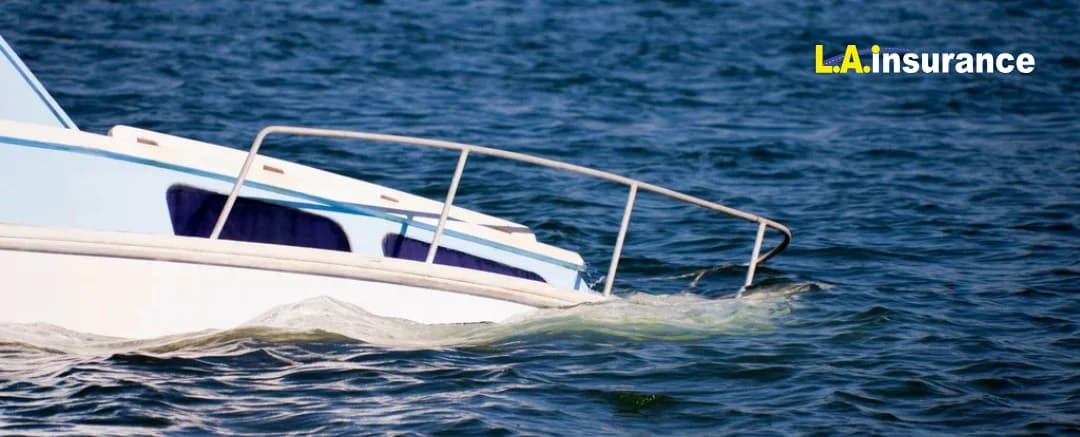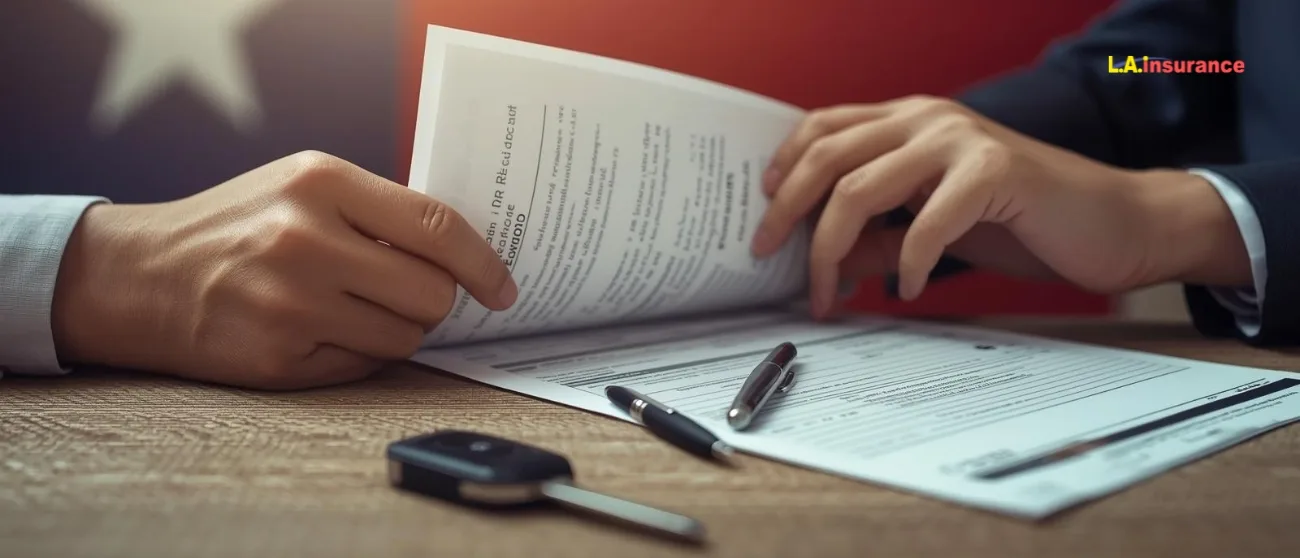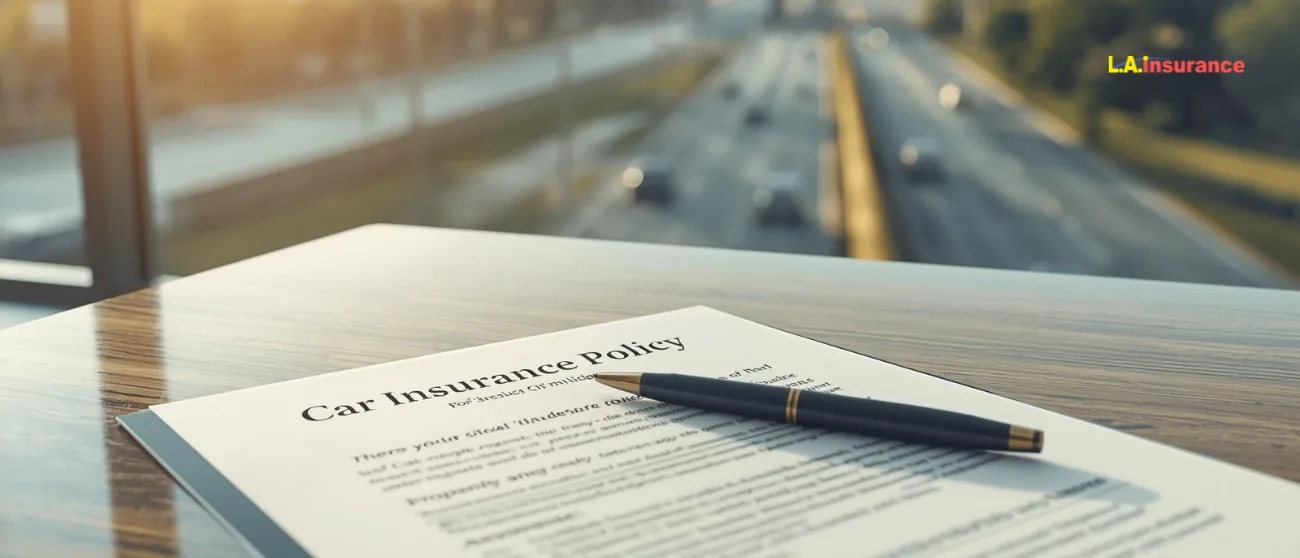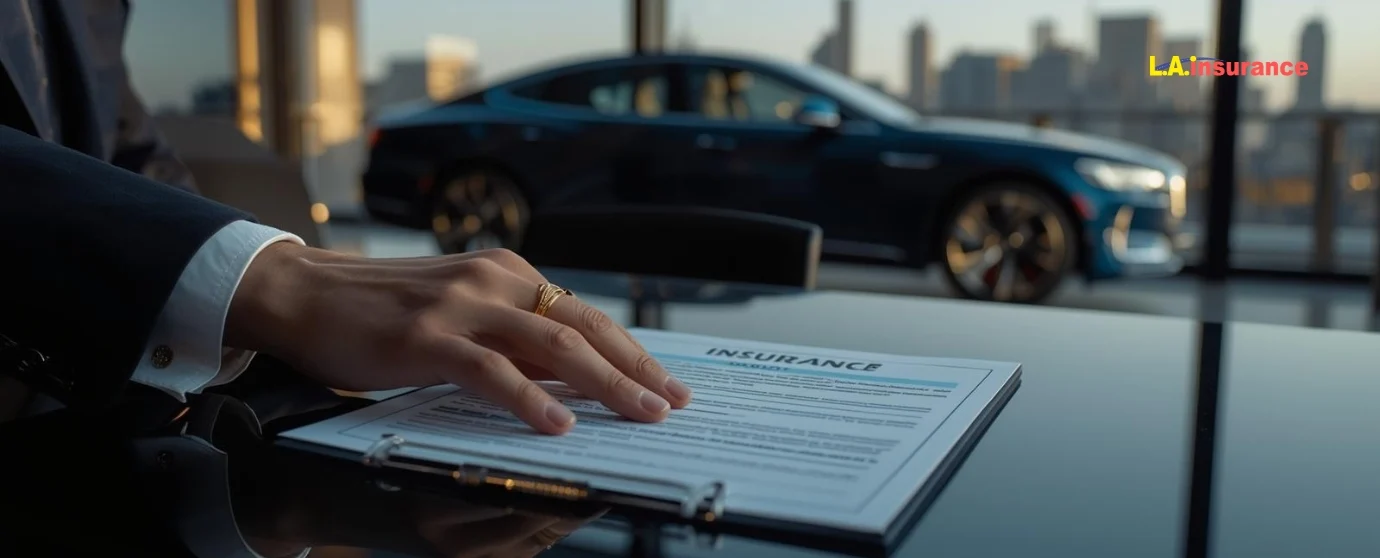
Publish Date: 25-06-2025
Boat & Watercraft Insurance
Does Boat Insurance Cover Sinking?
The most terrifying thing about boats is, they’re susceptible to sinking! It can happen anywhere and anytime. While you’re cruising, or even when you’re relaxed at home with the firm belief that your boat is safely docked, but perhaps it’s sinking right now while you’re reading this article.
Depending on your boat’s size, it can cost $5,000 to $10,000 just to get it out of the water. The cost of recovering a sunken boat also depends on the water depth, and how difficult and time-consuming it can be to locate and retrieve.
If it’s covered by shallow rocks, the cost of recovering your boat can significantly increase. Usually, the cost is higher for larger boats. As the cost of recovering a boat is so expensive, you might be wondering, “does boat insurance cover sinking?”. The good news is, yes it does.
Although there are some exclusions, in general, boat insurance does cover sinking, and pays for the cost of recovering, repairing and even replacing your boat up to your coverage limits.
Types of Boat Insurance that Cover Sinking
If you want boat insurance coverage for sinking, you will need to purchase coverage such as collision, comprehensive, and wreckage removal. Depending on how the accident happened, and what condition your boat is in, either or multiple coverages will apply to pay for the retrieval, repair, or even replacement costs of your boat.
When it comes to purchasing boat insurance, especially to cover sinking, it is crucial to ensure you have the right coverage at a reasonable rate. So, that’s why it’s important to explore boat and watercraft insurance solutions from a reliable insurance agency.
Before purchasing a boat insurance policy, it is essential to know which coverage particularly covers sinking, and how. Here's a breakdown of how collision, comprehensive, and wreckage removal coverage can protect you if the worst happens.
Collision Boat Insurance Coverage
Collision boat insurance pays for the removal of the sunken boat from the water, and its repair or replacement costs if your boat gets damaged and sinks due to a collision with another object or boat.
According to the US Coast Guard, collision contributes to 56% of boat accidents, which means more than half of boat accidents occur due to colliding with certain objects or another boat. The most frequent boat accidents involve collision with other vessels, objects such as submerged rocks, or groundings.
Water tides are unpredictable, and they can shift at any time due to changes in weather or natural conditions. If the water tides/currents get too fast, then your boat can capsize and collide with objects or another boat. If your boat sinks as a result of a collision or capsize, your collision coverage can help cover the damage, up to the limits of your policy.
Comprehensive Boat Insurance Coverage
Comprehensive boat insurance is the ultimate coverage that you need especially when your boat sinks. Typically, comprehensive coverage is also known as other than collision coverage mainly because it covers accidental damage that’s beyond your control.
Whether you’re using your boat, or it’s docked at the harbor, any unexpected event can happen that can cause your boat to sink. For instance, if there’s a severe storm, your boat can get severely damaged, causing it to sink. Or someone may vandalize your boat and create a leakage which can also cause it to sink.
In any of these situations, your comprehensive boat coverage insurance will pay for retrieving your boat back from the water along with its repair/replacement costs up to your coverage limit.
Wreckage Removal Coverage
Regardless of how your boat sinks, the wreckage removal coverage will pay the cost of getting your boat out of the water and towed back to the land, or straight to the repair shop. If it’s necessary, the wreckage removal coverage even covers the cost of destroying a boat that’s damaged to the point that it’s beyond repair.
You can either combine the wreckage removal coverage with any other boat insurance coverage, or you can purchase it separately. Be sure to check with your insurer, as some policies limit coverage amounts or require you to request this option specifically.
What’s Typically Not Covered by Boat Insurance Even for Sunken Boats?
Although boat insurance generally covers sunken boats, there are a few exceptions that violate the policy along with its terms and conditions. If your boat sinks, that's already a major loss! On top of that if your insurance claim gets rejected then you will have to bear the entire cost of recovering your boat out-of-pocket, which can be a tremendous financial burden.
So, it’s crucial for you to be aware of these exclusions as they can help you avoid unpleasant surprises, especially when you need your boat insurance coverage the most.
Gradual Wear and Tear for Lack of Maintenance
Insurance companies don’t provide gradual wear and tear that requires routine maintenance. Typically, boat insurance coverages are specifically designed to cover accidental damages.
So, once you file an insurance claim, your insurance company will assign an agent to investigate your claim. Based on that, if they find out that your boat sank due to lack of maintenance your insurance claim will be denied.
Manufacturer Defects
Similarly, after you claim your boat insurance to recover your sunken boat, if your insurer finds out that the boat sank due to a manufacturer defect, your insurance claim will be denied.
Insurers are not responsible for your boat’s manufacturing defect, so that makes your boat insurance claim void in the first place.
Reckless Cruising
Reckless cruising is a direct violation of your boat insurance policy. Whether you’re excessively speeding, or taking dangerous shifts and turns, if your boat sinks due to reckless cruising your boat insurance claim won’t cover it, and it will be denied.
Also, if you were under the influence of alcohol or drugs, your insurance claim would be denied, as the use of this substance often leads to reckless cruising.
Navigational Limits
Make sure to check your boat insurance policy to ensure your coverage area. If you cross your navigational area, then your insurer may not accept your claim to pay for the retrieval of your sunken boat.
So, if you’re going on a water voyage make sure to either stay within the navigation limits or talk to your insurer to confirm whether it's possible to extend it. If you want to ensure coverage within a large area, it’s recommended to get your boat insurance from an insurance agency that operates in several states.
For instance, you can check out L.A. Insurance which covers multiple states including Arizona, Colorado, Florida, Georgia, Michigan, Nevada, and Texas.
What to Do After Your Boat Sinks?
If you’re onboard while your boat is sinking, your first priority should be to get yourself back to safety either by boarding another vessel or reaching land. As soon as you’re out of danger, you should take the following steps.
- Report the incident to the police: If your boat sank underwater, call the police immediately, and report the incident. Specify the location of the incident if you can, describe how the accident happened, and how your boat sank. The police will carry out an investigation based on it and prepare a report which can help you with the claims process.
- Notify your insurer and start the claims process: The next step is to call your insurer and describe how the boat sank. Based on the situation the insurance agent will guide you to claim the insurance coverage that’s applicable in your case.
- Get your boat out of the water and towed to the repair shop: Based on your claim your insurer will carry out an investigation to verify the legitimacy of your claim. If everything checks out okay, your insurer will cover the cost of getting your boat out of the water and towed to the repair shop. Depending on the type of coverage you have, your insurance policy may also cover the boat’s repair/replacement costs up to your coverage limit.
The Bottom Line
If you have the right boat insurance coverage with adequate limits, it should cover the cost of sinking. Also, if you’re shopping for boat insurance, and if your main concern is to ensure that it covers sinking then you should consider adding collision, comprehensive, and wreckage removal coverage.
Yet, if you need help determining the types of boat insurance coverage that you particularly need, and its coverage limits, you can contact us for a free quote or find an agent nearby for a free consultation.
Frequently Asked Questions (FAQs)
Does insurance cover your boat if it sinks?
Yes, generally boat insurance covers sinking but only if you have the right coverage which mainly includes collision coverage, comprehensive coverage, and wreckage removal coverage. However, exclusions do apply due to a lack of maintenance leading to gradual wear and tear, manufacturer defects, reckless cruising, and crossing navigational limits (coverage area).
What does boat insurance not cover for sunken boats?
Your insurance won’t cover if your boat sinks due to gradual wear and tear due to lack of maintenance, negligence, reckless cruising, crossing navigation limits, and specific situations such as mechanical breakdowns.
Does liability coverage apply if my boat sinks?
If the other driver is at fault for the boat accident that has caused your boat to sink, then yes, the other driver’s liability insurance coverage will pay for retrieving your boat out of the water and bear its repair costs up to the coverage limit.
However, if the other driver does not have liability insurance, and is unable to pay out of pocket, then you will either have to use your uninsured/underinsured coverage or other coverages such as collision coverage.
If you have collision coverage or any of the required boat insurance coverage then you need to pay out of pocket to recover, repair/replace your sunken boat.
Does boat insurance apply if it sinks after hitting a rock?
If you have collision coverage, then yes, your boat insurance coverage will apply if your boat sinks from hitting a rock, or any other object.
Editorial Disclaimer
The information provided on this blog is for general informational purposes only and does not constitute professional insurance, legal, or financial advice. Coverage and rates are subject to individual eligibility, underwriting guidelines, and state availability. For specific questions regarding your policy or to get an accurate quote, please contact a licensed L.A. Insurance agent directly. We're an independent agency and not a direct insurance carrier. For more information on how we operate and handle your data, please see our Terms and Conditions and Privacy Policy.
Tag :
Boat & Watercraft








